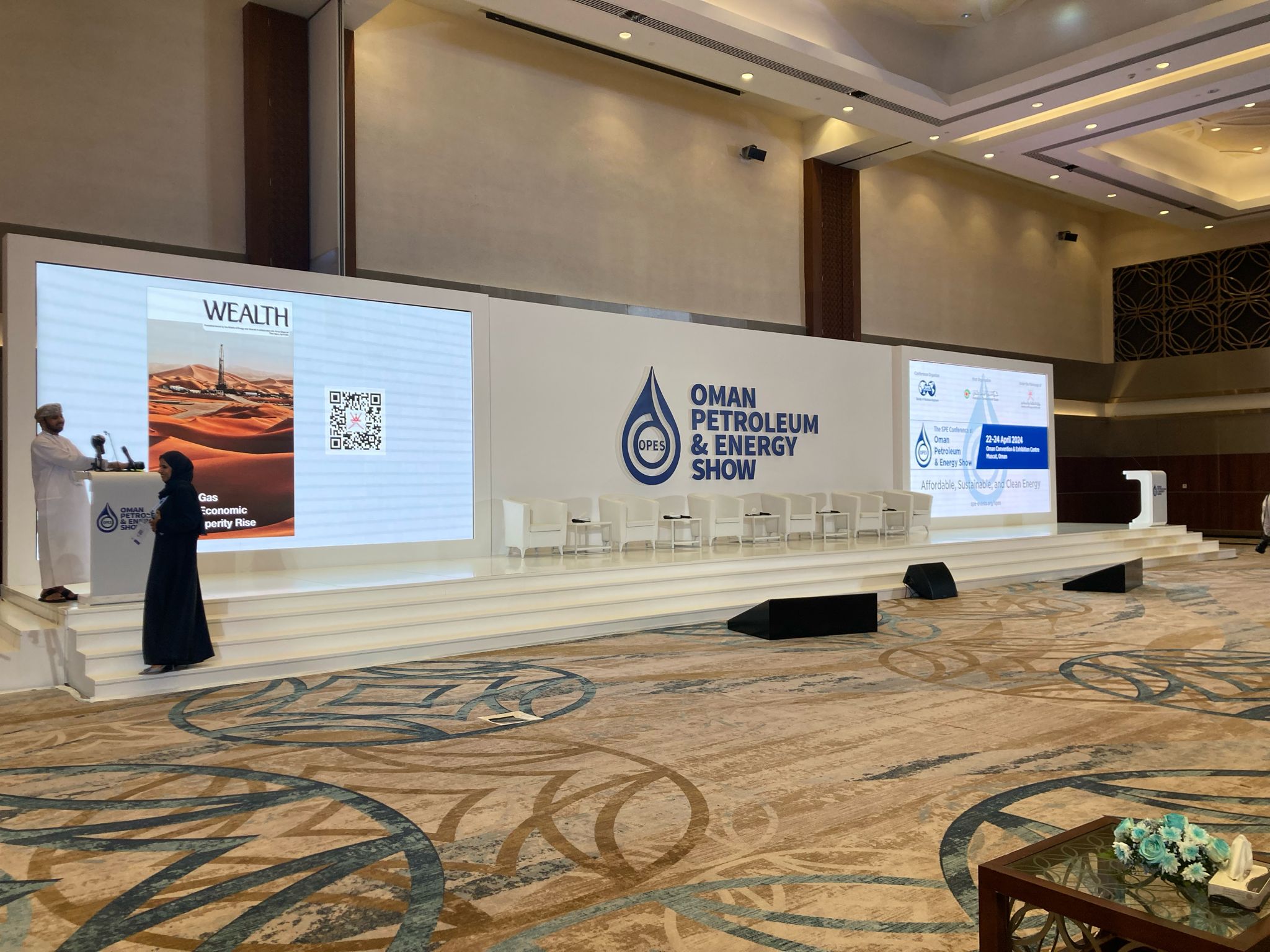COP28 ends with call to “transition away from fossil fuels”
The final COP28 document marks a historic first: an explicit call to end the era of fossil fuels. But experts say the text also includes weak language and loopholes.

The COP28 summit ended in Dubai with an explicit call for the “transitioning away from fossil fuels,” the first time the world has collectively called for the end of the fossil fuel era. After more than 30 years of international climate negotiations, the Dubai agreement marks a historic achievement in the ongoing energy transition.
“Together we have confronted the realities and sent the world in the right direction,” said the UAE’s Sultan Al Jaber.
But the reactions from climate experts were mixed, ranging from excitement that the call to move away from oil and gas was finally embraced by governments from around the world, to a more familiar feeling of frustration due to the loopholes and soft language included in the final text.
Critics say that despite the historic achievement, the final agreement in Dubai was a missed opportunity to kick off the needed phaseout of fossil fuels, coming at a moment when the climate crisis continues to worsen.
“It reflects the very lowest possible ambition that we could accept rather than what we know, according to the best available science, is necessary to urgently address the climate crisis,” Senegal’s climate minister, Madeleine Diouf, said on behalf of the bloc of Least Developed Countries.
Pacific Island nations, which have called for much more ambitious action as their countries face an existential threat from the climate crisis, were not happy, and said their voices were ignored.
“We weren’t in the room when this decision was gavelled. And that is shocking to us,” Tina Stege, the climate envoy for the Marshall Islands, said Wednesday.
“We see a litany of loopholes,” the Alliance of Small Island States (AOSIS) said in a statement. “It does not deliver on a subsidy phaseout, and it does not advance us beyond the status quo.”
Transitioning away from fossil fuels — with loopholes
While the final document covers a lot of ground, one of the most contentious aspects was how to treat the energy system.
The text states that the countries recognize “transitioning away from fossil fuels in energy systems, in a just, orderly and equitable manner, accelerating action in this critical decade, so as to achieve net zero by 2050 in keeping with the science.” It called for “accelerating zero- and low-emissions technologies,” which includes nuclear, renewables, low-carbon hydrogen, and carbon capture and storage.
But the document lacked near-term targets, only vaguely calling for: “Accelerating and substantially reducing non-carbon-dioxide emissions globally, including in particular methane emissions by 2030.”
Meanwhile, the document also recognized “transition fuels,” a euphemism for fossil gas.
In a sign of the disconnect between words and action, Germany’s foreign minister Annalena Baerbock hailed the progress made at the conference, stating: “This climate conference marks the end of the fossil fuel era.”
However, two days earlier, the German state-owned energy company SEFE submitted a letter to the U.S. Federal Energy Regulatory Commission, asking for the agency to swiftly approve a massive new LNG export project in Louisiana, from which SEFE will buy cargoes.
As Gas Outlook has previously reported, there is growing evidence that LNG is worse for the climate than coal, and that the ongoing LNG expansion cannot be reconciled with the urgent need to wind down the production and consumption of fossil fuels.
While the COP28 text calls for the transition away from fossil fuels, there is nothing binding in the document that will make this a reality in the short run. Germany is not alone. Many governments around the world have plans to continue to produce and consume fossil fuels that will take the world far past climate targets.
The final document in Dubai also included nods to carbon capture — a preferred industry “solution” that has a dubious track record and risks prolonging the fossil fuel expansion at great cost.
“For the first time, the move away from fossil fuels is explicitly stated in a COP outcome – a first nail in the coffin for the fossil fuel industry,” said Bill Hare, CEO, Climate Analytics, a Berlin-based climate policy research group. But “the agreement opens the doors to false solutions like carbon capture and storage at scale, and the reference to transition fuels is code for gas, which is absolutely not a transitional fuel. This has been promoted by LNG and fossil gas exporters.”
The International Energy Agency estimates that even full implementation of the pledges made in Dubai — an optimistic assumption — would only account for about 30 percent of the emissions cuts needed by 2030 to put the world on a pathway to avoid breaching 1.5 degrees Celsius. Those pledges included tripling renewable energy capacity by 2030, doubling the annual rate of energy efficiency improvements each year through 2030, and full implementation of the corporate methane pledges from the oil and gas industry, which would achieve near-zero methane emissions over the same timeframe.
Needless to say, ensuring full implementation of those pledges will be difficult, and even taken together, they fall short of what is needed.
“The destructive era of fossil fuels is fast coming to an end, as the COP28 final agreement shows – though that signal is muddied by loopholes and dangerous distractions,” said Caroline Brouillette, Executive Director of Climate Action Network Canada.
Last minute deal
The final days of the COP28 summit were tumultuous. A draft text late last week included a call for a “phaseout” of fossil fuels, raising hopes of a historically ambitious agreement. But oil-producing countries fought hard to water down the language. OPEC sent a letter to its members, warning them against agreeing to anything that might target fossil fuels. Saudi Arabia, OPEC’s most powerful member, was reportedly one of the biggest obstacles to an agreement in Dubai.
The fossil fuel “phaseout” language was quickly dropped, and a revised draft was dramatically weakened. That more fossil fuel-friendly version was widely criticized by Pacific Island nations and the European Union, along with a long list of environmental groups from around the world.
“The Republic of the Marshall Islands did not come here to sign our death warrant. We came to fight for 1.5 and for the only way to achieve that: a fossil fuel phase out,” John Silk, minister of natural resources and commerce for the Marshall Islands, said in a statement.
The European Union’s climate commissioner, Wopke Hoekstra, said it was “clearly insufficient.”
Former U.S. Vice President Al Gore was even more blunt. “The world desperately needs to phase out fossil fuels as quickly as possible, but this obsequious draft reads as if OPEC dictated it word for word,” Gore wrote on X, formerly Twitter.
The near universal outrage sparked more revisions. In the final hours, a new text included language that was strengthened. It called for “transitioning away from fossil fuels.”
That phrase, while noticeably looser than the “phaseout” language hoped for by some more ambitious governments, is nevertheless a major achievement. The mere fact that the final text, agreed to by the world’s governments, identifies fossil fuels as one of the principal sources of the problem, and that the world needs to transition away from them and achieve net-zero emissions by 2050, is an important marker.
Even though the agreement is voluntary and largely devoid of any teeth, the declarations send a signal to investors, governments, and societies about the direction of travel. Just as the 2015 Paris Agreement influenced and inspired subsequent climate policy around the world, the Dubai agreement marks something of a point of no return. In Dubai, despite a record number of oil and gas lobbyists in attendance, the world signalled that the end of the fossil fuel era is coming. Like the Paris Agreement, ambition will ratchet higher, even if the pace of the transition remains woefully inadequate.
The fact that this was achieved in a host country that is a major oil producer and OPEC member, was not lost on the attendees. “We’re standing here in an oil country, surrounded by oil countries, and we made the decision saying let’s move away from oil and gas,” Denmark’s Minister for Climate and Energy Dan Jorgensen said.
But the overwhelming sentiment from climate experts was that the end result is a mixed bag.
“The relentless presence of industry and petrostate interests ultimately weakened the final agreement, as some leaders echoed industry rhetoric and disinformation,” Delta Merner, lead scientist at the Science Hub for Climate Litigation at the Washington-based NGO Union of Concerned Scientists, said in a statement. “This dynamic is not a novelty; rather, it underscores the enduring power of the fossil fuel sector.”
But she added, things are changing. “The tide is turning against fossil fuels, and that was palpable at COP28,” she said.



